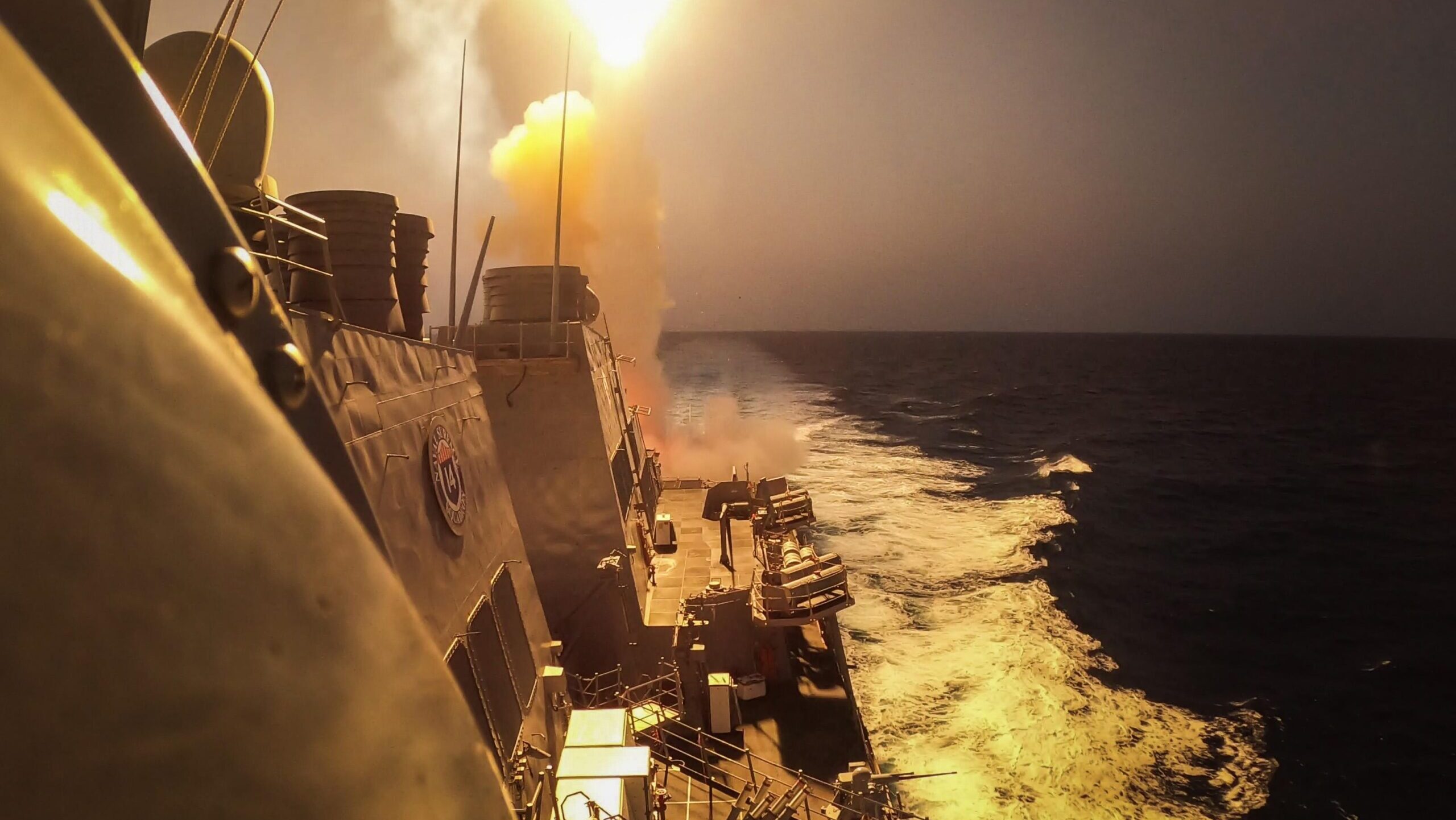Yemen: The West Is Paying the Price for Collusion Against the Arab Coalition
An-Nahar, Lebanon, February 20
The threat posed by the Houthi militias to freedom of navigation in the international sea lanes of the Bab el-Mandeb Strait and the Red Sea is no longer a mere inconvenience to be brushed off. The number of ships passing through the Bab el-Mandeb Strait has significantly dropped over the course of the past few months. Even if the conflict in Gaza were to be resolved, the threat would persist, impacting the interests of over 40 countries, including major global powers like China, India, the United States, and more than 30 European nations. This threat also extends to countries bordering the Red Sea, from Saudi Arabia to Jordan, with Egypt particularly feeling the pinch due to a significant loss of revenue collected from the Suez Canal, which is crucial to the Egyptian economy. Recently, during a televised interview, Dr. Fahd Al-Shelaimi, chairman of the Gulf Forum for Peace and Security, discussed the imminent threat posed by the Houthis to the security of sea lanes in the region. Dr. Al-Shelaimi pointed out that the leniency shown towards the Houthi militias by the West is a cause for concern as their unchecked actions could lead to potential attacks on European seas in the future. He emphasized the need to support legitimate Yemeni forces and southern component forces to establish a military deterrent on the ground, as the West is unlikely to engage in direct war in Yemen. Dr. Al-Shelaimi’s evaluation is rational, highlighting Western inaction and complicity over the years, which has allowed the Houthi group to flourish with Iranian support, ultimately posing a greater threat to the region than the Gaza conflict alone. The implications of this danger will be long-lasting, extending beyond the resolution of the Gaza crisis. While the Houthi group’s rhetoric may suggest solidarity with Gaza and opposition to Israel, practical actions such as disrupting international maritime navigation demonstrate a different reality. Iran, despite supporting the Houthi group, is hesitant to engage in direct conflict with Israel or the United States. It is clear that practical considerations and political calculations guide Iran’s actions. Only through coordinated efforts with legitimate forces in Yemen can the military landscape be altered, preventing further escalation and ensuring the security of vital sea lanes in the Gulf. —Ali Hamada (translated by Asaf Zilberfarb)


